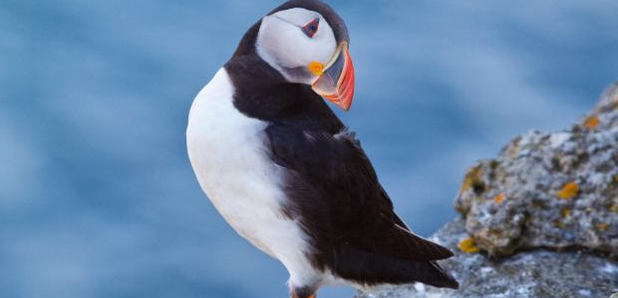Check your boats for rare birds!
17 May 2019, 09:18 | Updated: 17 May 2019, 09:19

Boat owners are being encouraged to check their boats, cargo and luggage for animal stowaways as part of efforts to protect seabirds nesting on UK islands.
The National Trust, RSPB and National Trust for Scotland have launched a new campaign to save seabirds such as puffins, Manx shearwater and European storm-petrel from predators such as rats, stoats and mink.
They warn that if predators get onto islands where many native seabirds breed in nests on the ground, they can eat the eggs and chicks, causing declines in populations or even wiping breeding colonies out.
The new campaign, "save our seabirds from invasive predators", has been launched to raise awareness of the risk they face, and the measures people can take to avoid accidentally transferring them to seabird colonies.
Measures include encouraging boat owners to check their boats, cargo and baggage and for day trippers to check their bags and keep any foodstuffs in animal-proof containers to avoid attracting animals.
Around the world, cases where invasive, non-native predators such as rats prey on eggs and young are one of the leading causes of declines in seabirds, the conservation organisations said.
The UK is home to an estimated eight million breeding seabirds, with up to half of the EU population of seabirds breeding on islands around our coasts - which are naturally free of predators.
Seabirds make their home on islands including the Farne Islands off the coast of Northumberland, Grassholm off the Welsh coast, Copeland in Northern Ireland, and Foula, one of the Shetland islands.
The campaign forms part of the Biosecurity for Life project which has been awarded £700,000 funding from the EU Life nature scheme.
The project will work with island managers, conservation organisations, island communities and marine industries to help implement biosecurity on islands to protect them from predators which are not naturally found there.
Work will include training, awareness-raising and on-the-ground conservation efforts to protect seabirds.
Dr David Bullock, Head of Species and Habitat Conservation at the National Trust said: "Many of the UK's incredibly important seabird populations, such as shearwaters, puffins, terns and storm-petrels, are in serious trouble and their colonies have to be free from disturbance in order to breed successfully.
"We need to do all we can to help them, not only to secure their future but also to protect our wider marine environment."
Tom Churchyard, Biosecurity for Life project manager said: "Putting good biosecurity measures in place for seabird islands will reduce the risk of new predators arriving and having a negative impact on breeding birds.
"Good biosecurity entails prevention and early detection of new invasive species, and being able to respond rapidly to incursions if they do occur.
"This threat is often underestimated and effective biosecurity can be expensive - to date, very few of the UK's internationally important seabird islands have any protection against the arrival of new predators.
"New incidences are reported every year from islands around the UK, and climate change among other factors is expected to make these a more common occurrence."






















